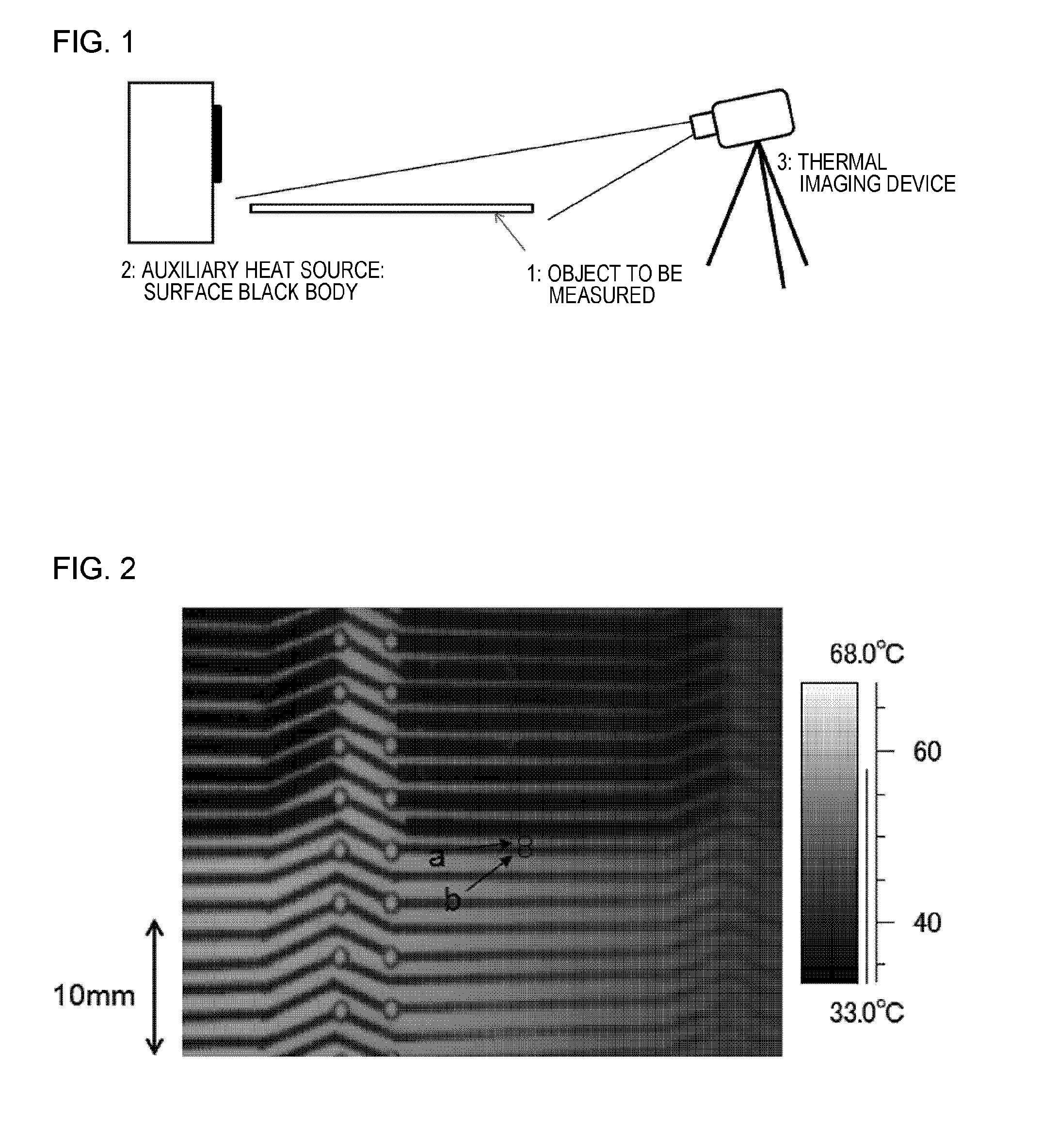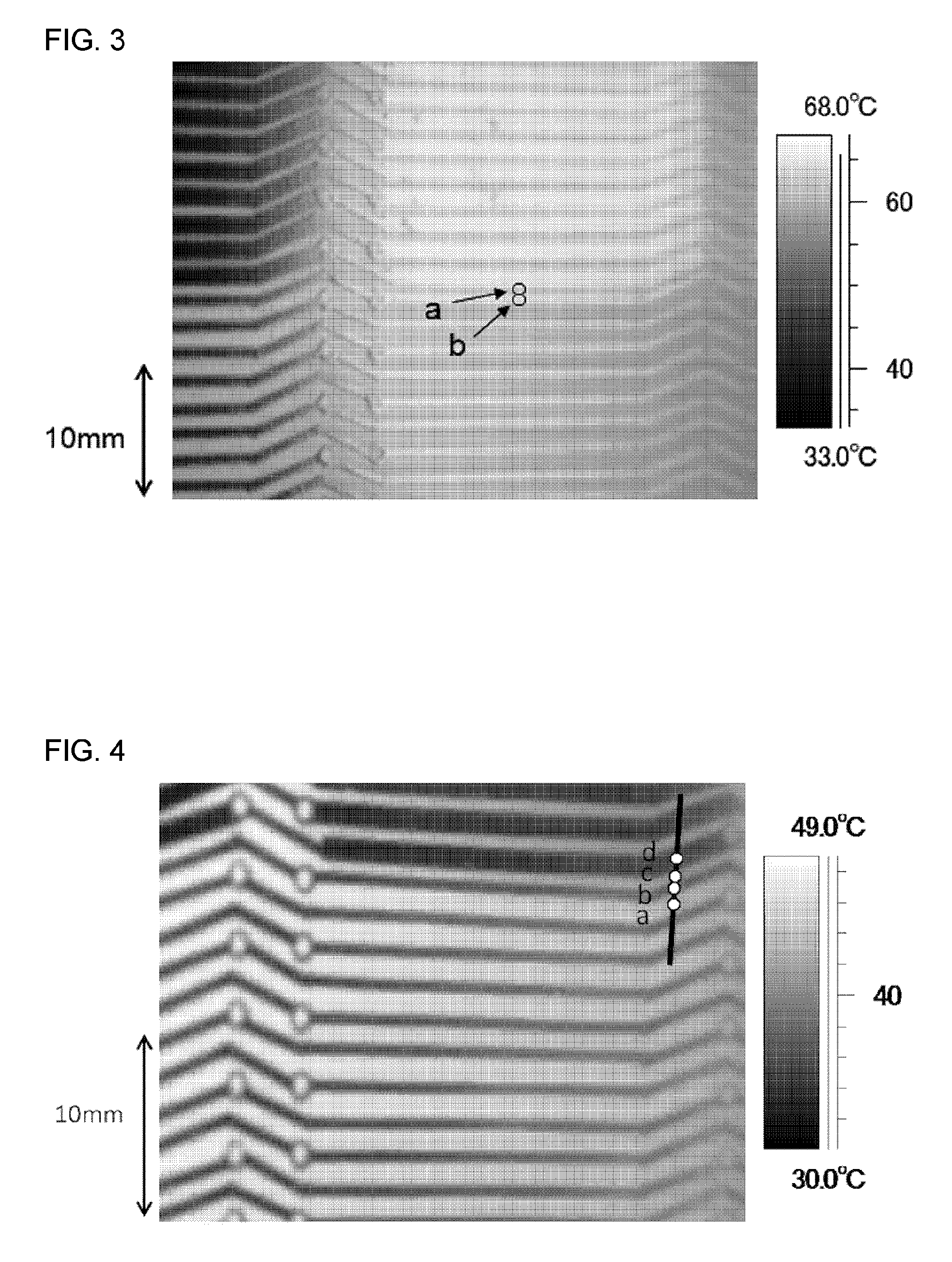Method and system of measuring surface temperature
- Summary
- Abstract
- Description
- Claims
- Application Information
AI Technical Summary
Benefits of technology
Problems solved by technology
Method used
Image
Examples
first embodiment
[0069]An embodiment of the first invention will be described below. The thermal imaging device captures a two-dimensional thermal image with a focus on a surface to be measured. Here, an object to be measured is a print circuit board, a semiconductor device or the like. A surface blackbody device of which the surface is blackened is used as the auxiliary heat source. First of all, thermal images are taken when changing the temperature of the auxiliary heat source in a step form while the object temperature is maintained approximately constant, or opening and closing the shutter that covers the front surface of the auxiliary heat source. Next, in the thermal images obtained, one place is selected from each of the high-emissivity portion and the low-emissivity portion which are so close as to be regarded to be isothermal. The radiances of the high-emissivity portion and the low-emissivity portion of the 2-level thermal image are obtained, the reflectance ratio Rρ is obtained on the ba...
second embodiment
[0082]An embodiment of the second invention will be described below. The thermal imaging device captures a two-dimensional thermal image with a focus on a surface to be measured. Here, an object to be measured is a print circuit board, a semiconductor device or the like. A surface blackbody device of which the surface is blackened is used as the auxiliary heat source. In this state, while the object temperature is maintained approximately constant and the temperature of the auxiliary heat source is changed, the thermal image is measured to find out conditions in which a pattern of the thermal image caused by the emissivity distribution of the object to be measured disappears.
[0083]The object temperature is obtained from the radiance measured at this time treating the emissivity as 1. When the emissivity of the auxiliary heat source is sufficiently close to 1, the object temperature may be obtained by measuring the auxiliary-heat-source temperature using a contact-type thermometer or...
PUM
 Login to View More
Login to View More Abstract
Description
Claims
Application Information
 Login to View More
Login to View More - R&D
- Intellectual Property
- Life Sciences
- Materials
- Tech Scout
- Unparalleled Data Quality
- Higher Quality Content
- 60% Fewer Hallucinations
Browse by: Latest US Patents, China's latest patents, Technical Efficacy Thesaurus, Application Domain, Technology Topic, Popular Technical Reports.
© 2025 PatSnap. All rights reserved.Legal|Privacy policy|Modern Slavery Act Transparency Statement|Sitemap|About US| Contact US: help@patsnap.com



